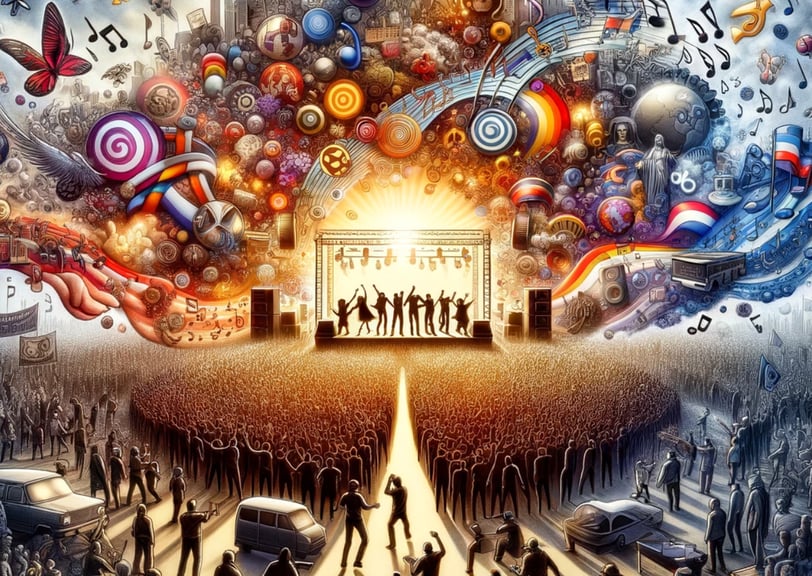The Social and Political Impact of Music
Understanding the Power of Music to Shape Culture
3/7/20242 min read


The Digital Age: Amplifying Voices Through Music
The advent of the internet and digital media has revolutionized the way music is produced, distributed, and consumed, amplifying its reach and impact. Social media platforms and streaming services have democratised music production, allowing independent artists to share their messages with a global audience. This digital landscape has facilitated a more inclusive and diverse musical discourse, enabling music to continue its legacy as a powerful agent of social and political change.
The Transformative Power of Music
Music holds a mirror to society, reflecting its complexities and nuances, and has the transformative power to influence societal norms and values. It speaks to the human spirit, invoking a range of emotions and inspiring action. As we navigate the challenges of our times, music remains a vital force in shaping our collective future, advocating for change, and fostering a more inclusive and equitable world.
Join the Conversation: The Power of Music in Shaping Our World
Are you fascinated by the impact of music on social and political change? Do you believe in the power of music to unite and inspire communities? If so, sign up for our newsletter today! Join a community of like-minded individuals who are passionate about exploring the intersection of music, culture, and social change. Our newsletter offers exclusive insights, stories, and perspectives on how music continues to shape our world in profound ways.
Don't miss out on the opportunity to dive deeper into the cultural and political significance of music. Sign up now and be part of the conversation that celebrates and examines the enduring power of music to influence society.
Throughout history, music has served as a powerful tool for expression, a medium to voice the unspoken, and a catalyst for social and political change. From the protest songs of the 1960s that became anthems for civil rights and anti-war movements to the global influence of hip-hop culture in advocating for social justice, music transcends boundaries, languages, and cultures, uniting individuals in a common cause and shaping the socio-political landscape of societies around the world. This post delves into the profound impact of music on shaping culture and driving social change.
Music as a Mirror of Society
Music often reflects the social issues and cultural moments of its time, offering insights into the struggles, aspirations, and experiences of communities. It captures the essence of societal shifts, echoing the collective consciousness of a generation. Through its lyrics and melodies, music has the power to comment on societal norms, challenge the status quo, and inspire dialogue and introspection.
The Role of Music in Political Movements
Historically, music has played a pivotal role in political movements, providing a rallying cry for change and unity. Songs like Bob Dylan’s "The Times They Are A-Changin'" or Sam Cooke’s "A Change Is Gonna Come" became synonymous with the civil rights movement, embodying the hopes and demands for equality and justice. In more recent times, artists across the globe have used their platforms to address political corruption, environmental issues, and human rights, demonstrating music's enduring capacity to influence political agendas and mobilize communities.
Fostering Cultural Identity and Global Solidarity
Music is a powerful tool for fostering cultural identity and preserving the heritage of communities. It allows for the expression of cultural narratives, traditions, and values, strengthening the bonds within communities while also offering a window into the diverse cultures of the world. Moreover, music has the unique ability to create a sense of global solidarity. It connects people across geographical divides, building bridges of understanding and empathy among diverse groups.
